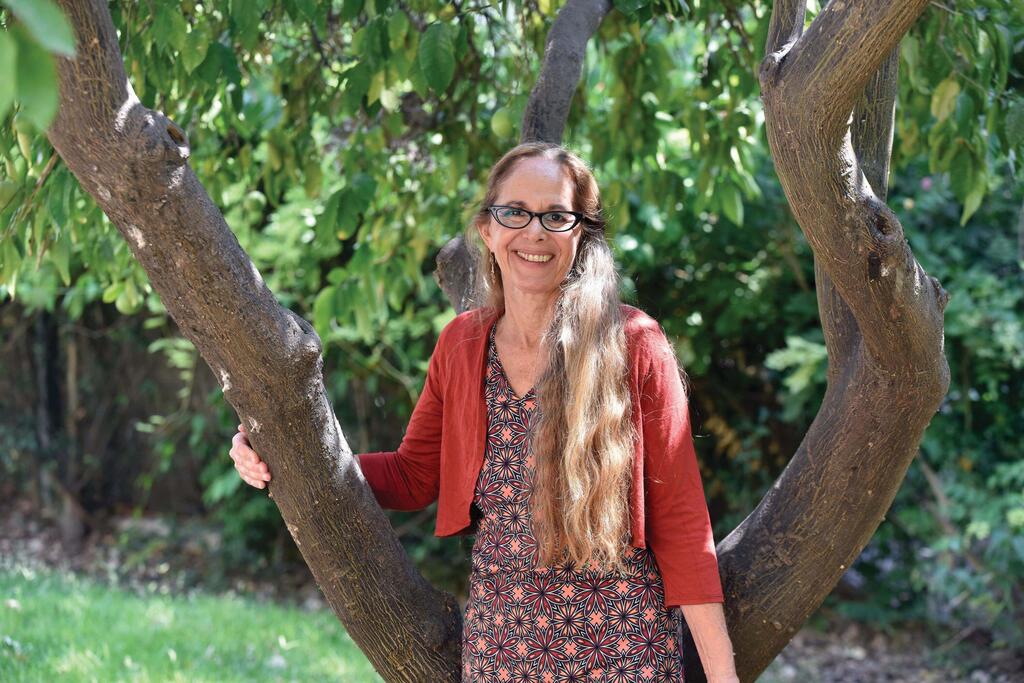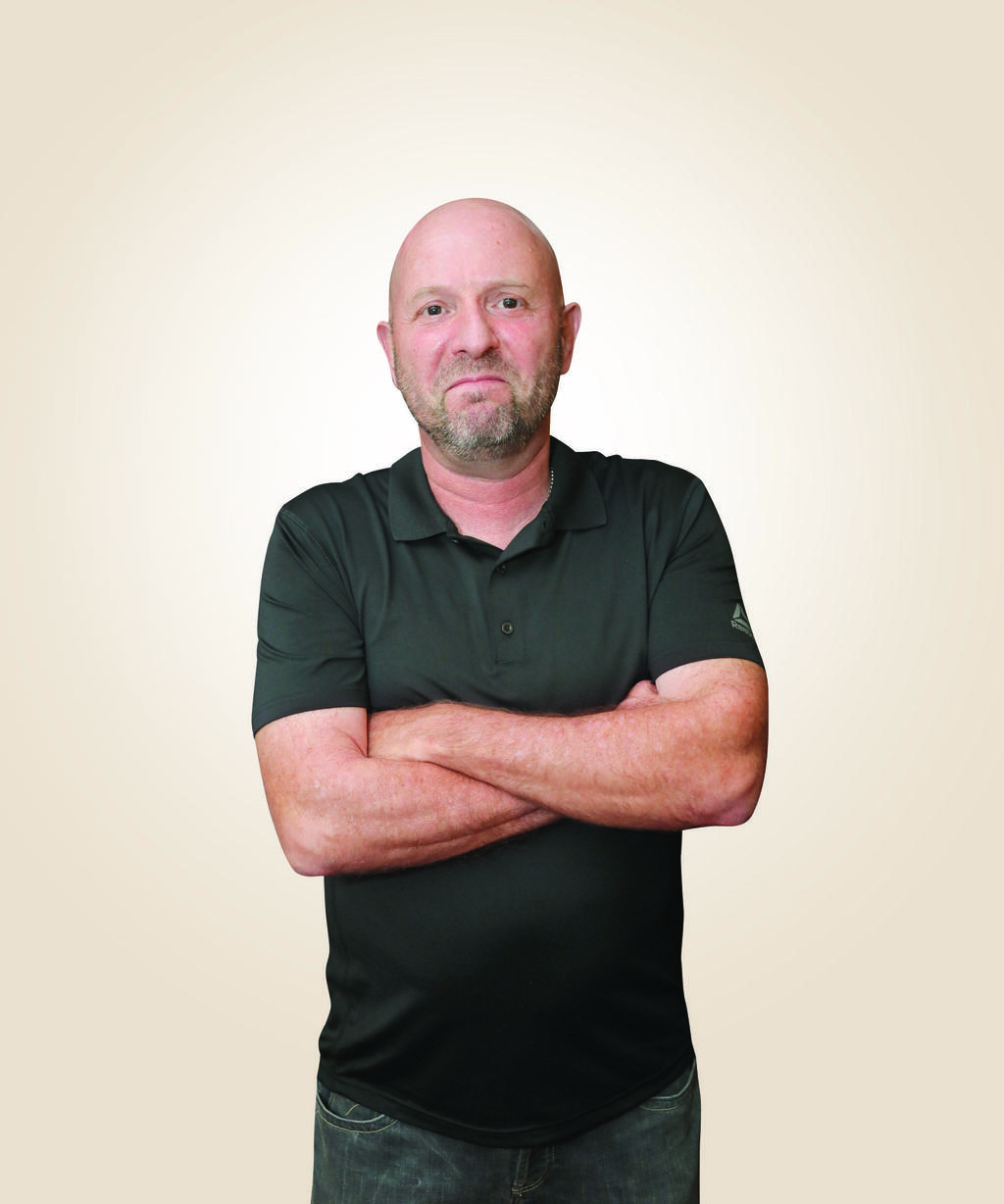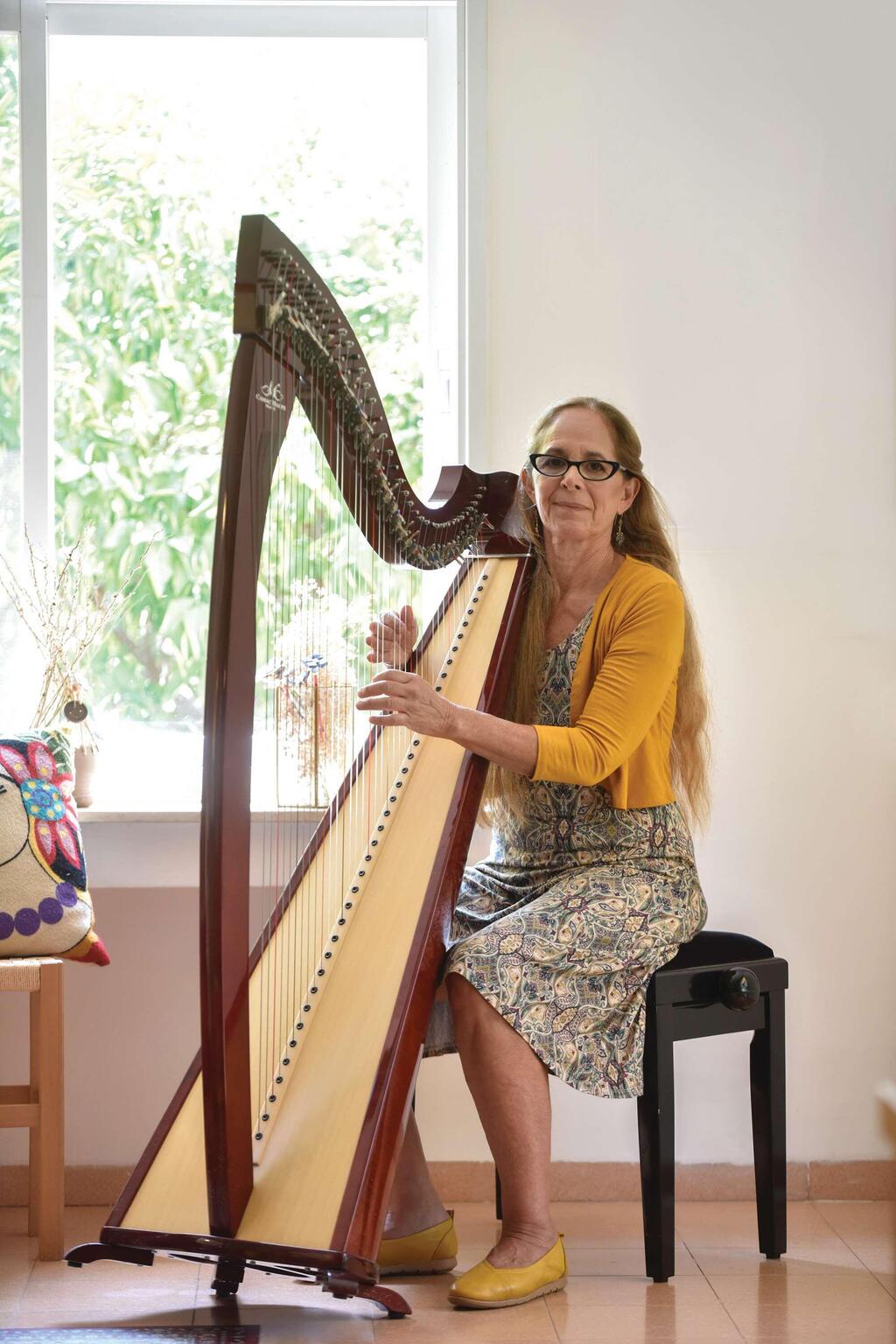Getting your Trinity Audio player ready...
"When a person's departure from this world is prolonged, creating significant suffering for both the individual and their family, I ask: Is there something unresolved? Are there angers or unresolved issues with someone?" says Iris Friedman, a life and farewell process companion. "I've seen many people hold onto themselves and not let go until things are settled, even the doctors didn't understand how it hasn't ended yet."
Read more:
For 20 years, Friedman has been accompanying people grappling with serious illnesses - and their families. She assists loved ones in making peace before a person leaves this world and feels that the connection formed helps the individual leave the world more gently, "on waves of love," in her words - and aids the relatives in living with more peace and less emotional burden. "If it’s not done in time, later there is no one to talk to," she concludes.
Friedman, 61, who is also a yoga teacher, is married to one of the funniest people in the country, Tal Friedman, and is a mother to three (28, 24, 16) - two of whom were adopted between them. She resides in Kiryat Tiv'on.
"I didn’t choose this, it chose me," she responds when I ask how she came to this unique occupation. "Death is woven into my life. From childhood, I had a strong connection with my grandfather and constantly asked him: 'Where will I be when I am not here?'. He would hold his head and say: 'I don’t know what the girl wants from me. You will be wherever you will be.' When I went with my father to visit an elderly aunt, something not every girl would be eager to do, I tried to think about how she felt. I told myself: she will die soon. She's probably afraid and wants someone to hold her hand."
Bar Refaeli's kindergarten teacher
Iris Bar-Yosef grew up in the Rehavia neighborhood of Jerusalem as the daughter of a Lithuanian mother, who was the daughter of Shmuel Cohana, an entrepreneur and owner of a ticket office ("he allowed people with disabilities to enter for free and therefore never became rich"), who was honored with the title of "Distinguished Citizen of Jerusalem".
Her father was of Middle Eastern descent, raised in an ultra-Orthodox home in Nachlaot, left the religion, and later returned to it. The connection that wove her family together was not common at the time in the elitist Rehavia: "While other fathers were doctors, professors, and pilots, my dark-skinned, Middle Eastern father worked in construction. Although we were middle-class, I was ashamed to say what my father did. I had to fight for my existence."
Her turning point was when the Rehavia high school refused to admit her. When she was sent to a vocational school, she resisted, went to the Agricultural School in Pardes Hanna, but dropped out after a year ("I wanted home"). She returned to Jerusalem, managed to get conditionally admitted to the prestigious Boyar high school, where she completed her full matriculation certificate. After military service in the Gadna, she enrolled in the Beit Zvi School for Performing Arts and surprisingly was accepted ("I studied with Rita; we had a nice friendship"). After a year, she realized her place was not there. "One of the students, later a famous actor, told me: 'You're so sweet, if you want to preserve yourself, fly away from here.' And he was right."
"A child who is about to leave the world wants their mom to go with them because how will they go alone? To alleviate the fear I say to them: 'Don't worry, the moment your hand leaves your mom's hand, there will be another hand, someone will immediately hug you'."
She married a guy she met at Beit Zvi, divorced him after two years, studied early childhood education at Beit Berl, and became a kindergarten teacher at a private kindergarten in Hod Hasharon ("I was Bar Refaeli's kindergarten teacher for three years"). During this time, she met Tal: "I was post-divorce, somewhat broken, and went with a friend to a movie at the Tel Aviv Museum. When we left the movie, the friend saw Tal, who worked there as a guard, said he studied with her and introduced us. We exchanged phone numbers."
When she was 27, the two married, and simultaneously she began studying healing, wanting to accompany people through life processes. A year later, she enrolled in art studies at the Midrasha ("I still paint to this day"), and when she finished, she and a friend established a kindergarten that educates towards a love of art.
After a few years, she decided to focus on therapeutic conversation through healing, something she did for 20 years. In this framework, she had the opportunity to accompany families who sought assistance in saying goodbye to a beloved person, and three years ago she decided to specialize in this field. Out of a sense of mission, she recently established a website that explains about accompanying farewell processes (irisfriedman.net). "When a person is very ill, and doctors recommend taking advantage of the remaining time for farewell, I help all the hearts there to connect; to say what they want to say and haven’t said."
"If I brought home what I emotionally experience in my work context, I'm not sure anyone here could handle it. When Tal comes home, in contrast, he remains a comedian"
It's not always about illnesses: sometimes, Friedman is asked to come to the home of a person aged 90 and above when it is undoubtedly their last days. It's especially hard for her when it involves young people or children: "It's not natural for a young person to die. A child who is about to leave the world wants their mom to go with them because how will they go alone? To alleviate the fear I say to them: 'Don't worry, the moment your hand leaves your mom's hand, there will be another hand, someone will immediately hug you'."
Islands in memory
She arrives at a hospital or a hospice, and through means such as conversation, playing the zither ("I've dreamed about it since childhood and realized it a decade ago"), joint painting, writing words on stones, and reading Psalms, she helps families say goodbye to their loved ones in the kindest way possible. "When someone envelops a family in the farewell process, it provides an anchor. I try to bring love into the room and help the family find a moment of comfort amidst the pain. When it ends, despite all the sorrow, they remember the beautiful moments, of the music, of the pleasant tranquility. These are small islands in the family memory to which you can return."
She cannot come to every home that invites her, both due to geographical limitations ("sometimes they arrange accommodation for me in a distant place") and due to the patient's condition, as communicated to her over the phone. "First, I need to sense what they want and need from me. Sometimes I arrive at a home where the patient's condition is severe, but it is still not possible to talk about death. My role is to help everyone begin to digest things, hoping that the digestion and realization will help to release."
Another reason she does not respond to every inquiry lies in her commitment to each family: "It's not something that can be done on a whim. It requires my enlistment. When I accompany a family, I am with them once to several times a week. In every meeting, I need to be fully present. The moment they need me, it's hard for me not to respond because I start to feel those who need me."
What are people most afraid of before they die?
"I thought I would hear from the people I accompany that they are afraid of where they will be, and the answers I heard kind of amazed me: 'I don't want it to hurt.' When I accompanied a close friend who was diagnosed with cancer, I tried to understand from her the intensity of the pain she experienced, and she answered: 'You don't understand what pain is.' I realized that it is not a pain that we, the healthy ones, can understand."
What's your advice for a person who is about to die and wants to make the most of their time?
"Don't rely on the things he needs at this stage to come to him. Initiate all the places where he could say goodbye and say the most important things to loved ones. However, it's recommended to focus on good things and allow as much love as possible to enter. If there are less good things, it's better to give them up and not throw them at people. It's also important that the sick person, whose powers are waning, says what he feels: if a train station starts near his bed - relatives he hasn't seen for three years or neighbors come and it doesn't suit him - he needs to signal."
Do you believe that the deceased remain within us?
"Definitely. There's no doubt that our loved ones remain in our hearts and are totally connected to us. I always remind the families I accompany that the farewell is from the physical body; the soul continues its journey and can be felt all the time. When I was trying to get pregnant, before adopting my first child, I was in great difficulty. Within all the struggle, the subject of adoption came up at home. It was the only time I dreamed of my grandfather, many years after he passed away. He came to me in a dream and said: 'Iris, open another door. You are not opening the door you need to open.' I woke up in the morning and immediately knew what my grandfather meant. The next day we started the adoption process."
Your father passed away a year and a half ago at the age of 93. Did you accompany him?
"Yes, I was with him in hospice at home, played the psaltery, and suddenly he took his last breath. Nothing prepared me for this. It surprised me that it surprised me. I pleaded with the Creator to give him just one more breath and let me know before He takes him. As Barry Long wrote in his book 'Let Me Talk to You About Death': when death comes, it's never the right time."
What did you conclude from your processes after losing your father?
"It sharpened for me how important it is to go through the separation process and be precise in terms of timing because we do not know if afterward, we will have time to say the important things. Since then, I prepare families for the fact that no matter how much we prepare for it, it will suddenly strike us."
Complicated and straining, you didn’t manage to say goodbye before they passed away. Do you feel that absence?
"I was very angry that I was not called to say goodbye to my grandfather. This is part of what built me in this role and clarified for me the importance of farewells. Regarding my mother, I was deeply saddened that I was not there the moment she took her last breath. The difference between my farewell from my father and farewells from my grandfather and mother is reflected in my dreams. Four months after her death, I had a dream in which I clearly saw her face and she said goodbye to me. It helped me alleviate the difficulty. My father, on the other hand, appears in my dreams without a form, when I need help and his wise insights."
Does dealing with death on a daily basis make things hard for you? Does it sadden you?
"Often, when I say what I do for a living, people say, 'Oh, that’s so hard,' and I reply that it is not hard for me because it feels natural. Perhaps thanks to the fact that I see a definite connection between life and death, wherein we end and move forward, I can be there for those who need support in this transition. I do feel sorrow and sadness, and I connect deeply with the people and families I accompany, but I work on myself to not sink into the sadness, but rather to contain it."
How do your two professions, accompanying sad farewell processes and being a brilliant comedian, merge together at home?
"First of all, I maintain separation, because if I brought home what I emotionally experience in my work context, I'm not sure anyone here could handle it. When Tal comes home, in contrast, he remains a comedian. Precisely because of the great difference between our worlds, something whole is created."




